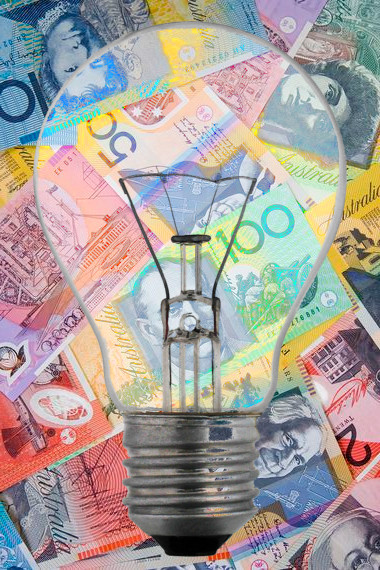Price rise resisted
 Advocates are pushing to stop a steep power price rise in Victoria.
Advocates are pushing to stop a steep power price rise in Victoria.
Victoria's energy regulator, the Essential Services Commission (ESC), is facing pressure from social service groups to abandon a proposed change that includes raising the Victorian Default Offer (VDO), a benchmark for the rest of the market, by around 30 per cent in the coming financial year.
The rise would mean that typical annual household bills increase by about $426 a year, while small businesses may need to find another $1,738 to keep the lights on.
The VDO is an independently set power price that serves as a reference point for the rest of the energy market. Therefore, any increase approved by the commission is expected to affect the majority of customers on other deals offered by their energy retailers.
The proposed increase is broadly in line with the 20 per cent to 24 per cent increases proposed by the Australian Energy Regulator for customers on its Default Market Offer in other parts of the country. However, it would lift the VDO to its highest price since its introduction by the Victorian Government in 2019.
Emma King, from the Victorian Council of Social Service (VCOSS), says that vulnerable Victorians would struggle with the price hike, which is set to take effect in July, due to the rising costs elsewhere.
“Winter's going to look really tough for Victorian households,” she warned.
According to data from the ESC, more than 43,000 homes across the state have requested help from their energy retailers to pay bills in the three months to the end of December 2022.
The average amount sought by each person was more than $700 in arrears, and some debts reach well into the thousands.
The ESC has blamed rising wholesale electricity costs for the proposed increase, driven by market volatility in 2022, caused by factors like the war in Ukraine. It hopes that setting higher prices in the short term will help bring them down in the medium and long term.
However, some experts disagree with the ESC's reasoning.
Bruce Mountain, from the Victoria Energy Policy Centre, has argued that the commission's calculations have overestimated the production costs facing many of the state's retailers.
“With costs unchanged, but allowed wholesale prices twice as high as before, that translates into very much higher [profit] margins for the retailers at the expense of customers - and unnecessarily so,” he said.
The VCOSS and Professor Mountain are urging the commission to reconsider its draft pricing at stakeholder forums.
The peak body is separately lobbying the Victorian Government to consider targeted support measures in its upcoming budget.
The federal government's caps on the price of coal and gas have been credited with stopping the price of default offers from rising even further.
Nearly two million Victorian households have received power bill assistance under the government's Power Saving Bonus scheme since July.







 Print
Print